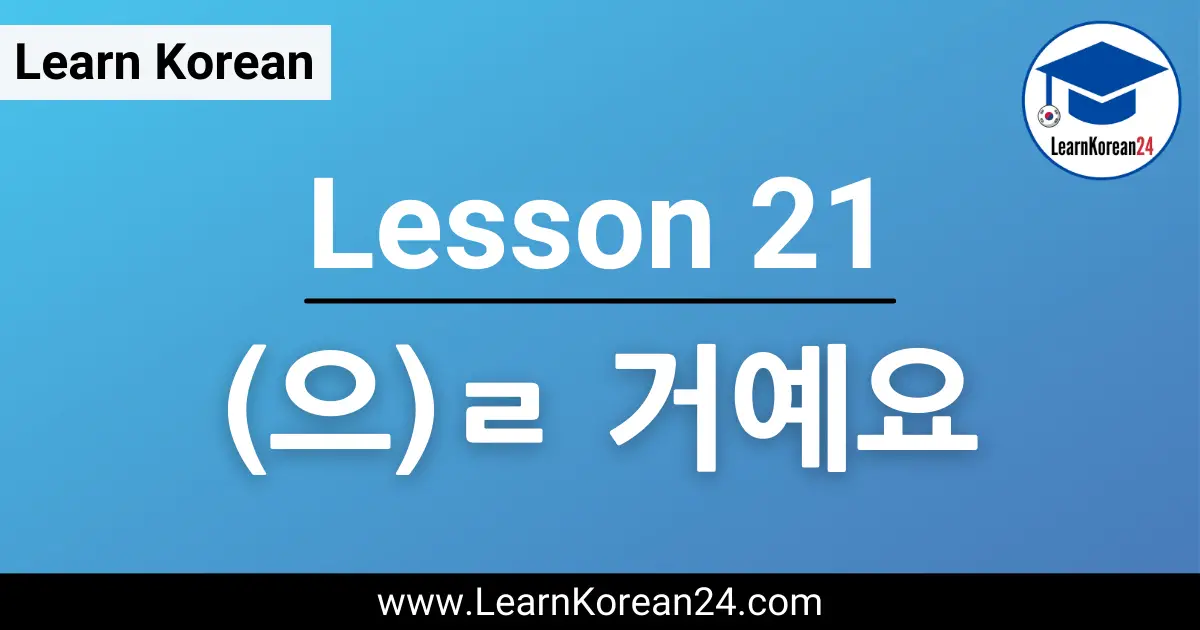Lesson 21: (으)ㄹ 거예요
Welcome to Unit 2 of our free online Korean course! Congratulations on making it this far! In unit 2, you will learn more endings, particles, and expressions so that you can make more and more complex Korean sentences. In this lesson, we will learn how to use the ending (으)ㄹ 거예요 to form the simple future tense and say things like “Tomorrow, I will meet my friends.“, “I am going to exercise later.”, etc.
FYI: From unit 2 onward, we will no longer be showing romanized letters next to Korean words, so if you have not yet learned how to read Hangeul yet, we recommend you do that first.
Lesson 21: (으)ㄹ 거예요
By attaching the ending (으)ㄹ 거예요 to a verb you change the verb into the future tense. This is like saying ‘will’ or ‘going to’ in English. With regular verbs, there are two variations of this ending. These are ㄹ 거예요 and 을 거예요. The one you use depends on whether the verb stem ends in a vowel or a consonant. See the table below.
Conjugation Rules
| Conjugation Rule | Examples |
|---|---|
| Verb Stem Ends In Consonant + 을 거예요 | 먹을 거예요 (will eat) |
| Verb Stem Ends In Vowel + ㄹ 거예요 | 갈 거예요 (will go) |
Examples
보다 = to see/watch
볼 거예요 = will watch
영화를 볼 거예요. = I will watch a movie. / I’m going to watch a movie.
읽다 = to read
읽을 거예요 = will read
책을 읽을 거예요. = I will read a book. / I’m going to read a book.
사다 = to read
살 거예요 = will buy
옷을 살 거예요. = I will buy clothes. / I’m going to buy clothes.
Example Sentences
A: 어디에 갈 거예요? = Where are you going to go?
B: 공원에 갈 거예요. = I’m going to go to the park.
A: 주말에 뭐 할 거예요? = What are you going to do at the weekend?
B: 친구를 만날 거예요. = I’m going to meet my friend.
A: 내일 뭐 입을 거예요? = What are you going to wear tomorrow?
B: 티셔츠하고 청바지를 입을 거예요. = I’m going to wear a T-shirt and jeans.
A: 어디에서 점심을 먹을 거예요? = Where are you going to eat your lunch?
B: 식당에서 먹을 거예요. = I’m going to eat at a restaurant.
A: 지금 운동할 거예요? = Are you going to exercise now?
B: 아니요, 나중에 운동할 거예요. = No, I’m going to exercise later.

